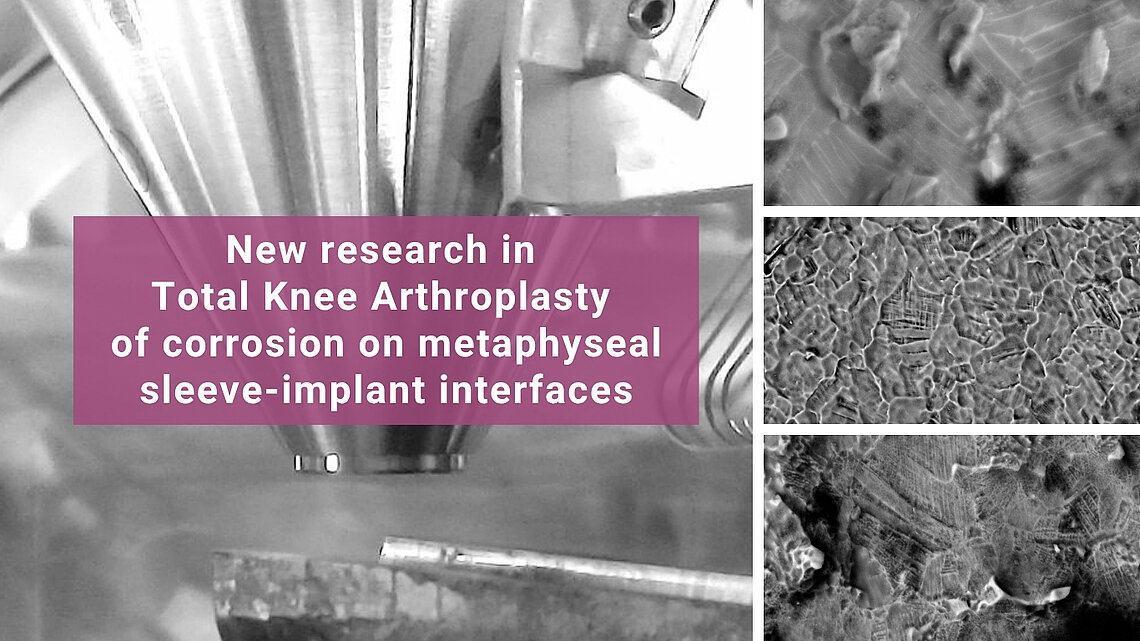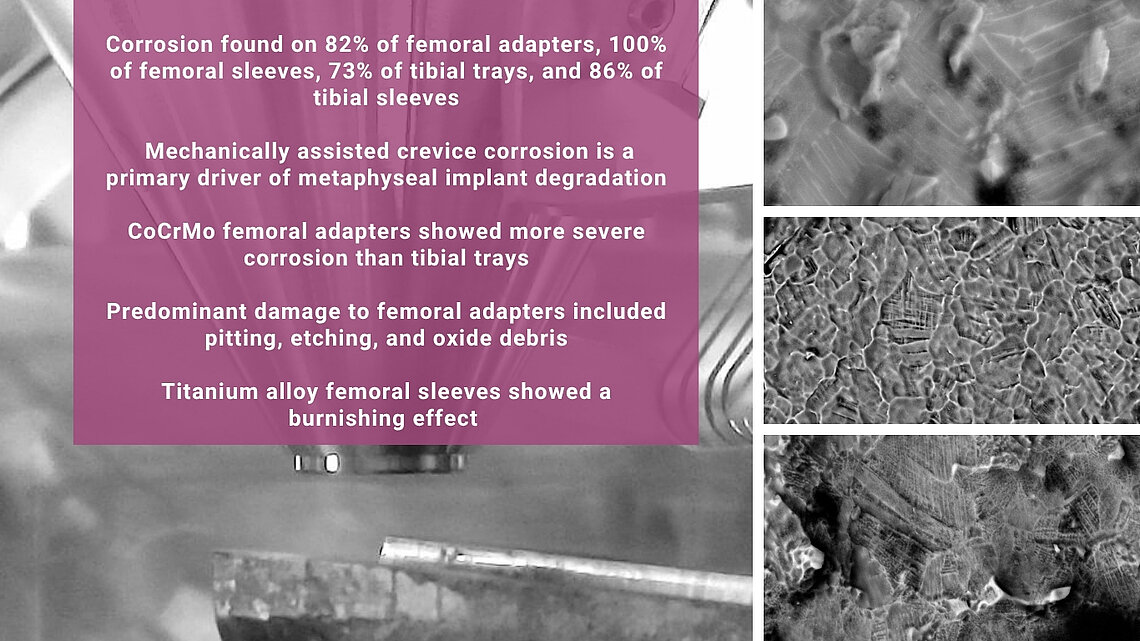What’s up your metaphyseal sleeve? It could be corrosion
A group of biomedical engineers and orthopedic surgeons from Drexel, Utah, and Clemson led by Dr. Steven M. Kurtz have published a retrieval study in the Journal of Arthroplasty addressing a critical issue in Total Knee Arthroplasty (TKA): the prevalence of corrosion and its damage to metaphyseal sleeve-implant interfaces.
Surgeons often use these sleeves to counteract bone loss and enhance stability in revision TKA – but the associated metal release can lead to adverse local tissue reactions (ALTR), including pseudotumor-like masses, osteolysis, and fibrotic tissue formation.
This research team examined 32 modular components from revision TKA with metaphyseal sleeve implants, putting them “under the microscope” of X-ray spectroscopy.
What did the authors discover?
- Corrosion is prevalent, with signs exhibited by
- 82% of femoral adapters
- 100% of femoral sleeves
- 73% of tibial trays
- and 86% of tibial sleeves
- Mechanically assisted crevice corrosion (MACC) is a primary driver of metaphyseal implant degradation
- Cobalt-chrome-molybdenum (CoCrMo) femoral adapters exhibited more severe corrosion than tibial trays
- Predominant damage to femoral adapters included pitting, etching, and oxide debris
- Titanium alloy femoral sleeves showed a burnishing effect
It is worth noting that one patient exhibiting elevated cobalt and chromium levels was misdiagnosed with infection-related pain by multiple surgeons. This shows how metal-related complications can mimic or hide other conditions.
What do the authors emphasize?
- Surgeons should be aware of the potential for modular metaphyseal sleeves to corrode in vivo – especially when metal-on-metal interfaces are involved.
- Surgeons should consider measurements of serum and synovial metal concentrations (only after ruling out other diagnoses) when dealing with patients with metaphyseal sleeves who experience unexplained pain or suspected metal release
This study underscores the importance of continued research into metal-related complications in revision TKA, and of continued vigilance in identifying and managing these cases. With the growing evidence of corrosion-related failures in revision TKA, the need for alternative, metal-free designs become increasingly relevant – not only in hips, but in knees, too.
Please check for regulatory approval in your country.
References:
Aslani S, Kurtz MA, Pelt CE, et al. Crevice Corrosion Degrades Metaphyseal Sleeves Following Total Knee Arthroplasty: A Retrieval Study. J Arthroplasty. Published online June 4, 2025. doi:10.1016/j.arth.2025.05.118
This text was created with the support of AI.


